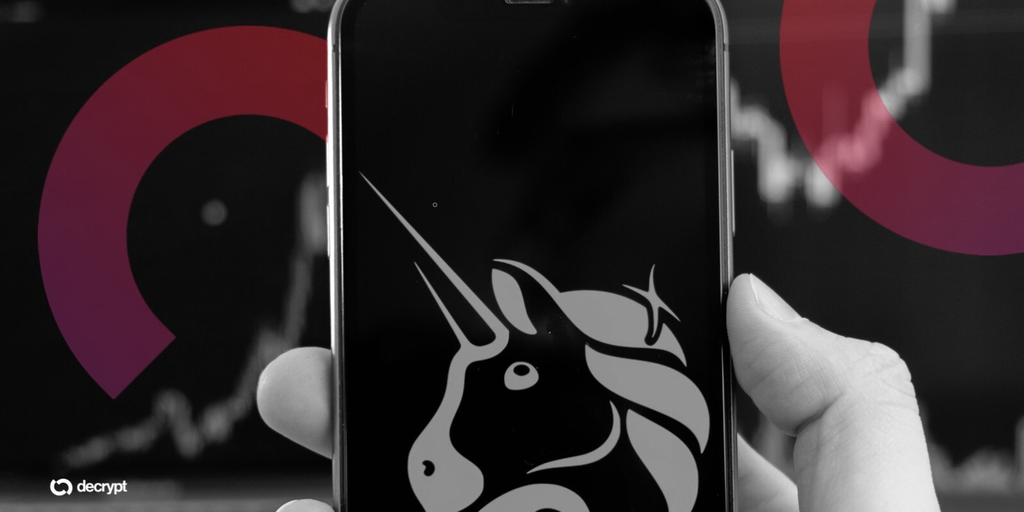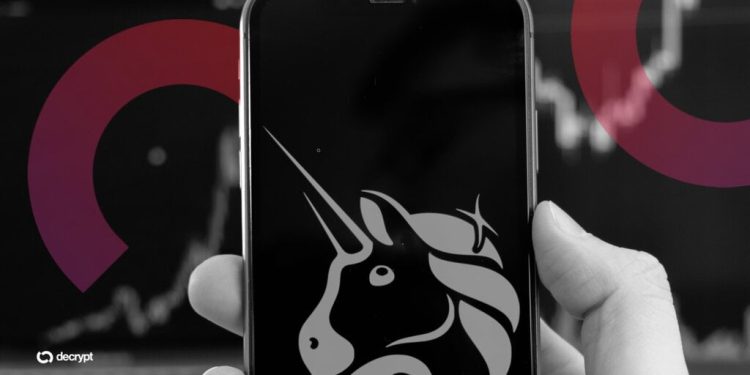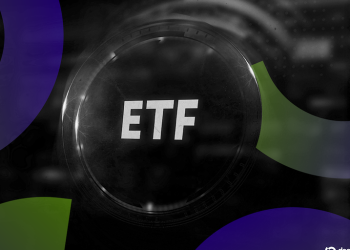
In brief
- Uniswap has proposed activating protocol fees and funding a perpetual UNI burn, including a one-time retroactive burn of about 100 million tokens.
- The overhaul aims to channel the DEX’s sizable fee revenue to token holders, addressing a long-standing value gap.
- New mechanisms, MEV discount auctions, ending front-end fees, and v4 “aggregator hooks, ”seek to deepen liquidity and expand revenue, according to the proposal.
The native token belonging to decentralized exchange Uniswap is soaring this week, outpacing major cryptocurrencies amid a slew of changes expected to boost revenue and shore up liquidity.
Unveiled on Monday, the “UNIfication” proposal from Uniswap Labs and the Uniswap Foundations aims to put the protocol’s roughly $650 million in daily trading volume to work by activating protocol fees to fund a perpetual UNI token burn.
A token burn permanently removes tokens from circulation, reducing supply and increasing scarcity, potentially lifting the value of the remaining tokens. According to the proposal, the aim “aligns incentives across the Uniswap ecosystem.”
Roughly 100 million UNI tokens are expected to be burnt from the treasury retroactively, pegged from the time of the exchange’s inception. UNI is up 41.5% over the past 24 hours and a further 83% on the week, according to CoinGecko data.
“Uniswap is the largest and the original spot DEX since 2018, generating more than $1 billion in fees annually, but there has not been a mechanism to pass that value to token holders,” Peter Chung, head of research at quantitative trading firm Presto, told Decrypt. “This proposal, if implemented, will change that.”
Over the past month, Uniswap has accrued $222 million in fees, per DefiLlama data, bringing the protocol’s annualized fees to over $2 billion. In total, the platform has generated cumulative fees of $5.4 billion, exceeding its total value locked of $5 billion.
Beyond the burn, the ambitious plan introduces several key mechanisms, including Protocol Fee Discount Auctions for MEV internalization and a refocus on core protocol growth by ending fees for Uniswap Labs’ front-end interface, wallet, and API.
The proposal also seeks to launch “aggregator hooks,” aiming to turn Uniswap v4 into an onchain aggregator that collects fees on external liquidity.
“This proposal comes as DeFi reaches an inflection point,” Uniswap founders Hayden Adams, Ken Ng, and Devin Walsh wrote in the proposal.
“Decentralized trading protocols are rivaling centralized platforms in performance and scale, tokens are going mainstream, and institutions are building on Uniswap and other DeFi protocols,” they added.
They also said a changing regulatory landscape under the Trump administration and the end of its legal troubles, in which it had previously been accused of promoting scam tokens and violating the Securities Act, had prepared the Uniswap community for its “next steps.”
“Labs will also accelerate growth through builder programs, grants, incentives, partnerships, M&A, venture, onboarding institutions, and exploring moonshot efforts to unlock new value for the Uniswap ecosystem,” the proposal reads.
Daily Debrief Newsletter
Start every day with the top news stories right now, plus original features, a podcast, videos and more.























